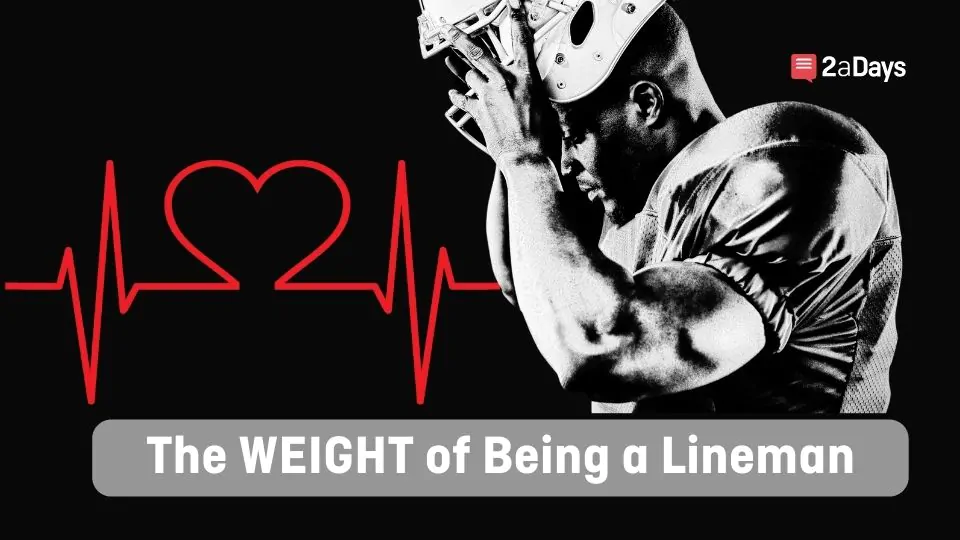Offensive or defensive lineman are commonly instructed to maintain a weight over 300 pounds to have success on the football field. While this may look like an invitation for them to eat whatever they want, it's not all fun and games–maintaining such a weight can have adverse health effects. With just 3% of college players going on to play professionally, the question becomes how to prepare yourself mentally and physically for the end of your football career. For lineman, they may also have to adjust their eating habits, which complicates things.
According to the University of Oregon's nutritionist and assistant athletic director James Harris, linemen, worn down from their playing, want to rest and don't necessarily change the way they live and eat once their college careers end. Dr. Jeffrey Potteiger, who studied the potential risks facing football players, says that overweight college-level football players “should be aware of the potential for elevated blood pressure, diabetes, and abnormal cholesterol levels.”
Harris has research on his side. In a report from Ohio State University, 60% of linemen were insulin-resistant, a risk-factor for type-2 diabetes, and 42% had metabolic syndrome, which includes high blood pressure, high triglyceride levels, and low levels of ‘good' cholesterol. All of these can be side effects of consuming 5,000 calories a day, which is typical for college linemen.
Related: Nutrition for Athletes: Overview
These ailments may not be the fault of the athlete, though. In the healthcare industry, overweight individuals can face discrimination when their health conditions are treated like personality traits. According to a 2015 research paper, viewing overweight or obese individuals as lazy, as weak-willed, or as lacking self-control, which can affect the way in which they treat such patients.
Furthermore, while most male athletes are thought to be slender and muscular, these ideals are not possible for linemen to maintain. Encouraged to eat and bench more, linemen can form unhealthy habits to achieve success on the field. Off the field, athletes may be less inclined to seek medical treatment due to the prevelence of weight discrimination within the healthcare industry.
To avoid some of these health issues down the line, players should prioritize their nutrition. According to dietitian Dawn Weatherwax-Fall, athletes only need around 18-19 calories per pound of bodyweight each day to build muscle. A healthy mix of foods includes 60% carbohydrates, 15-25% fat, and 15-25% protein.
After your playing career, it can be difficult to transition to eating the recommended 2,000 calories a day. However, losing weight can result in massive health benefits. In a Harvard Health study from 2020, found that losing 5% of your total body weight can result in clinically significant physiological changes. Furthermore, losing weight can help alleviate joint pain as every four pounds you carry increases stress on your knees.
According to advice from former NFL offensive linemen, the first year is the most important to drop the weight. Try to develop a plan, set a goal, and start it immediately after you stop playing.
It might not be easy. For instance, Damien Woody, former offensive lineman for the Patriots, Lions and Jets, has had a long road to weight loss. Four years after his playing career, Woody went on the Biggest Loser and despite losing over 100 pounds, he gained it all back because he was eating and working out in an unsustainable way. At age 42, Woody was able to lose 50 pounds through lighter, higher rep lifts, spinning, and rowing. When asked how he was able to lose weight and keep it off, Woody said that it came down to “eating right, sleeping right, working out 4-5 times a week and just moving.”
No matter where you are in your athletic career, start thinking about how to train your body for life after football.
End: Have an idea for a story or a question you need answered? Want to set up an interview with us? Email us at [email protected]
* Originally published on April 18, 2022, by Chloe Singer







